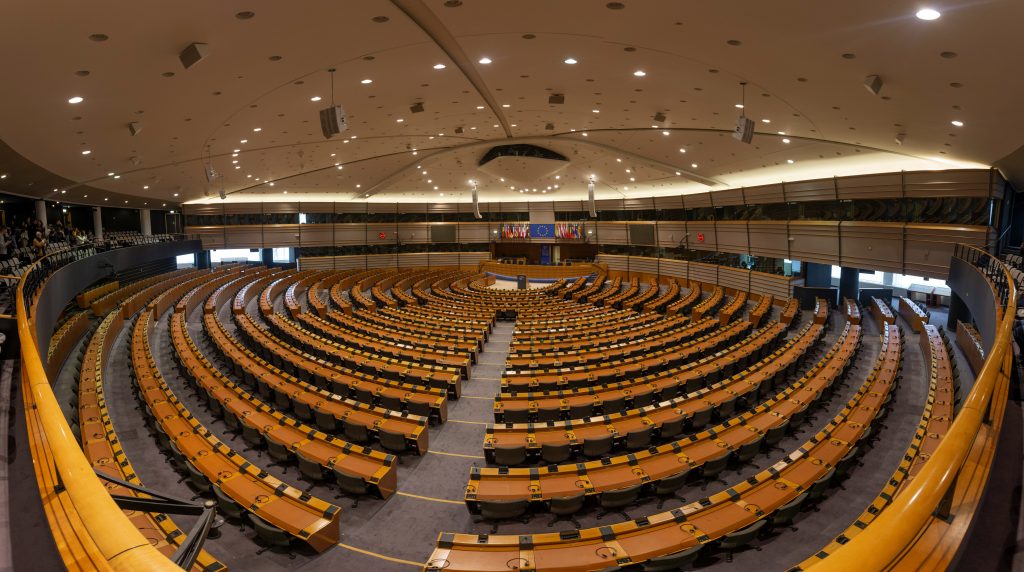[FR] Interparliamentary cooperation in the EU: time for a new start?
In the context of the role of national parliaments in the EU, the issue of cooperation between national and European parliaments deserved to be examined separately.

In recent years, there has been renewed interest in the role of national parliaments in European integration for two reasons. On the one hand, there has been a steady increase in the proportion of Community legislation in national legislative work. According to a rough estimate by J. Delors, this represents 60 to 80% of the legislative work of national parliaments since the Single Act, leading them to demand greater participation in the European decision-making process. On the other hand, there has been ongoing debate about the “political deficit” of the European Parliament. Despite being directly elected by universal suffrage since 1979, this institution has been slow to establish itself in the eyes of European citizens as the body that represents their aspirations.
The combination of these two phenomena has given rise to numerous publications on the EU’s “democratic deficit”. For the most part, this work has focused on the relationship between national governments and their respective parliaments, and more specifically on the issue of parliamentary control during the negotiation phase in the Council of Ministers of the Union. Using a comparative approach, it has highlighted the significant inequalities between national parliaments and concluded that there is a need for convergence in parliamentary control mechanisms. However, the issue of cooperation between national parliaments was given short shackles in this research. Although rarely addressed separately, this issue is not to be confused with the previous one. While recognising its decisive role in reducing the “deficit” in relations between national parliaments and governments, the issue of interparliamentary cooperation goes further. By focusing on the many forums for meetings between national and European parliaments (Conference of Community and European Affairs Committees (COSAC), Conference of Presidents, Assises, etc.), it raises the question of the involvement of EU parliaments in the European institutional framework. The Treaty establishing a Constitution for Europe highlighted the topicality of this issue.
Two factors lead to this conclusion. Firstly, as it was itself the result of a meeting between national and European parliamentarians within the Convention on the Future of Europe, the Constitutional Treaty naturally led to cooperation between the actors involved. Much more than COSAC or any other previous form of cooperation between parliamentarians, the Convention enabled them to develop a closeness of mind brought about by working together. In this sense, it acted as a catalyst for cooperation. The second reason is intrinsic to the text of the Constitutional Treaty. Protocols 1 and 2 institutionalise the role of national parliaments within the EU and provide for a formal procedure for interparliamentary cooperation to ensure that EU institutions respect the principle of subsidiarity. According to Article 7 of Protocol 2, the parliaments of at least nine countries may require the Community institutions to reconsider a draft that does not comply with this principle. The Constitutional Treaty therefore creates a strong common interest for national parliaments keen to ensure that their prerogatives are respected.
The topicality of the issue of interparliamentary cooperation has motivated this research, which has two objectives: firstly, to clarify the logic currently governing interparliamentary cooperation within the EU and, secondly, to examine, in the light of the innovations introduced by the Constitutional Treaty, the regulatory framework for improving such cooperation. To this end, our work will be divided into three parts. First, based on institutional, academic and personal sources, we will take stock of the current state of interparliamentary cooperation. Next, we will seek to decipher the expectations of the national parliaments themselves in this area. To this end, we will use the responses to questionnaires sent between December 2004 and February 2005 to the secretariats of the committees specialising in Community affairs in each parliament. Finally, in the last part, we will present proposals and recommendations for improving the current mechanisms for interparliamentary cooperation.




